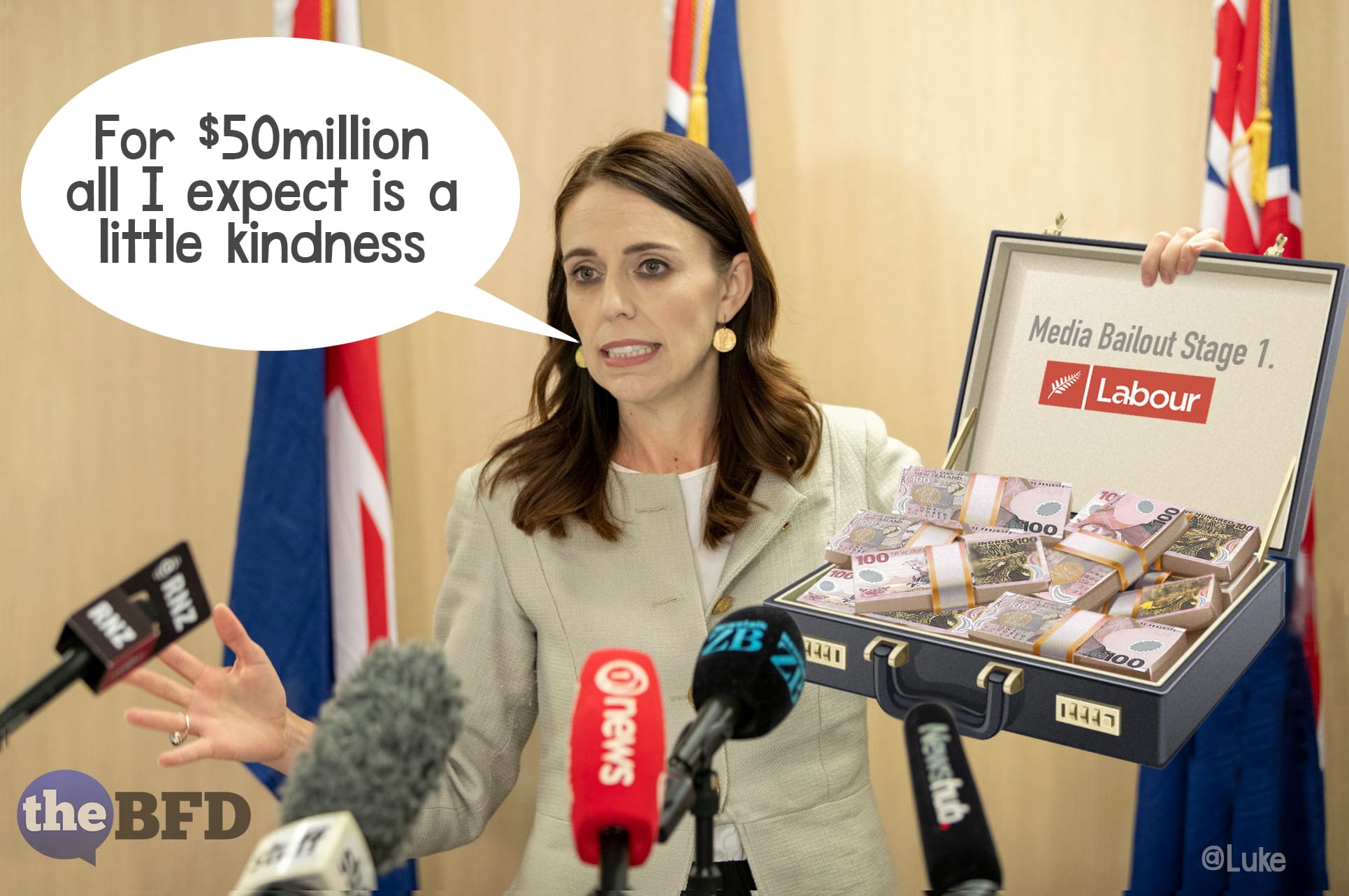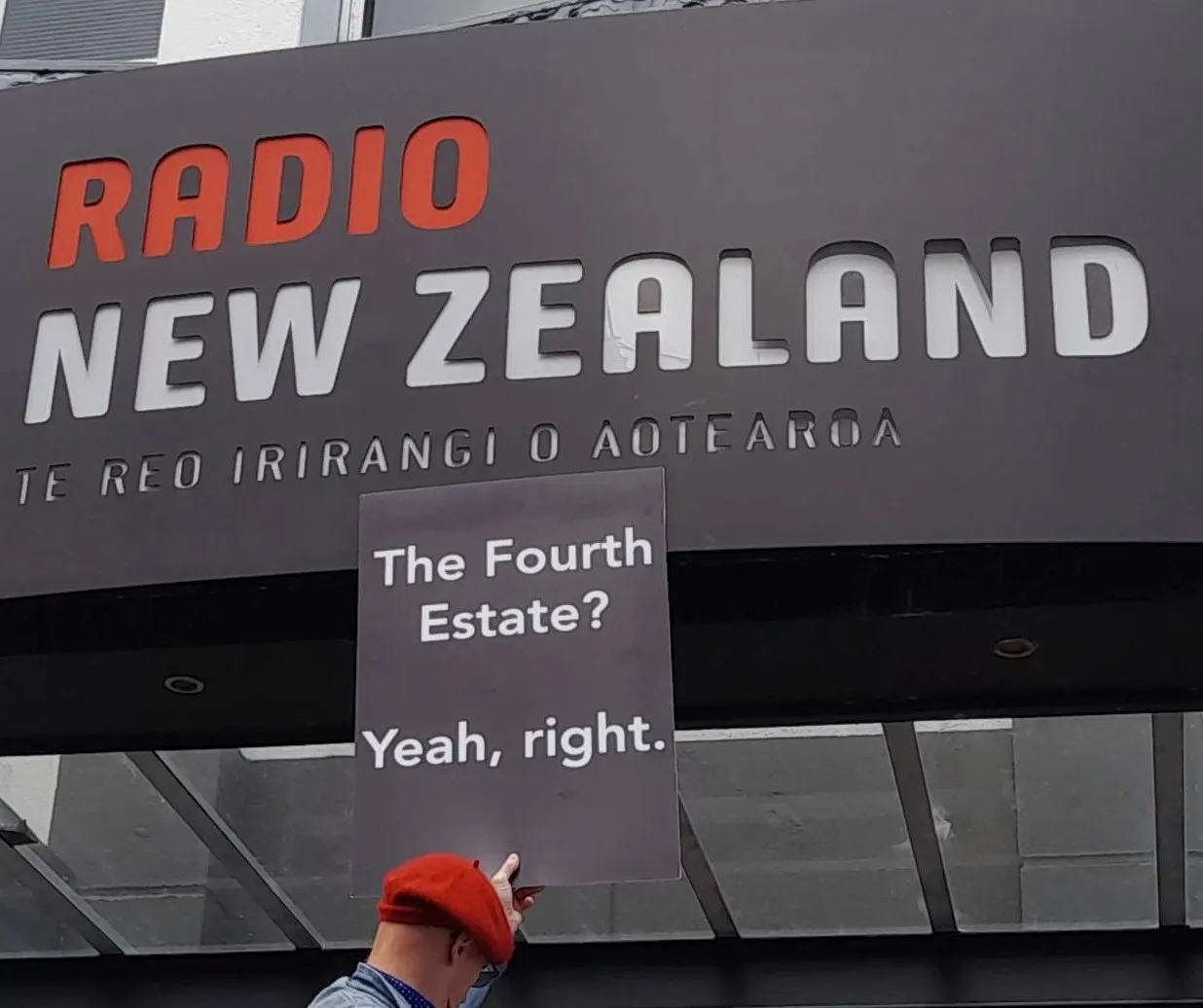Table of Contents
Mark Freeman
The head of Radio New Zealand has expressed concern about the general public’s declining trust in mainstream media (MSM) news. He’s also acknowledged there was a negative public response to government funding of private MSM outlets over the COVID period.
In a talk at the recent United Nations Association of New Zealand conference Advancing Agenda 2030, RNZ’s CEO Paul Thompson outlined a number of challenges that the country’s MSM are facing.
One is greater public distrust. The Reuters Institute Digital Media Report shows New Zealand trails other countries in trust in the media, he said. “The global average is 50% of people trusting the media. In New Zealand it’s 41.” Another survey, AUT’s media trust survey, shows overall trust in news in New Zealand fell 11 percentage points from 2020 to 2023 — from 53% to 42%.
Other challenges for the MSM mentioned by Mr Thompson are news fatigue in the public, increased use of social media and the relatively low level of per capita spending on the MSM in New Zealand.
Yet another challenge has, ironically, been the New Zealand Government’s financial support of MSM outlets through the $55-million-dollar Public Interest Journalism Fund. “There was a kick-back and a negative reaction to some of the funding of private media using public money.”

He didn’t explicitly identify this public reaction to the funding as a cause of declining trust in the MSM, although that would be a reasonable inference to make.
However, what is clear is that a large proportion of the public – more than 40% – do see the MSM’s relationship with the Government as problematic.
One question in the 2023 AUT media trust survey asked respondents whether they believed that “news media is independent of undue political or government influence most of the time”. Only 32% agreed while 43% disagreed. 26% neither agreed nor disagreed.
Two respondents cited in the AUT report criticised the cosy relationship between the government and the MSM:
It’s hard to trust the news when views or opinions that go against the opinion or theme of the media/government are silenced. There should always be room to ask questions and learn more. I lost my trust in the media when the government called itself the “one source of truth” and wouldn’t allow any real scientific or political rebuttal.
(Female, 35-44, NZ European)
Mainstream media are losing credibility because they have become government puppets who no longer report the real truth. They’re not even interested in investigating the real truth. They simply repeat the government narrative and I think that’s shocking and unacceptable.
(Female, 45-54, NZ European)
These comments echo the views of many of us who have realised since 2020 that “our” Government and MSM don’t serve us in the way they claim to. We’ve been manipulated and lied to on a number of key issues affecting our health and our freedom of movement. The MSM have been the Government’s docile lapdogs promoting lockdowns, vaccine passes and vaccine mandates – but turning into rabid dogs and attacking anyone who has questioned the official narrative.
One of the solutions that Mr Thompson has offered in order to increase public trust in the MSM is to have “a strong robust independent media sector to underpin our democracy, underpin cohesion in our society”.
There is a whole bunch of New Zealanders who felt that their needs weren’t being taken care of. We can’t ignore those groups. We have to think about how we actually supply them with independent trusted news.
No doubt most BFD readers would agree with this statement, but what independent, trusted media does he have in mind? Surely not RNZ? Although he wasn’t clear about this, it’s a definite possibility, since RNZ refers to itself as “New Zealand’s independent public service multimedia organisation”, providing “trusted and independent news and current affairs”.
How can RNZ be independent when it’s funded by the government? RNZ’s claims of independence are probably references to editorial independence, meaning government ministers and departmental heads don’t tell RNZ editors what – and what not – to broadcast. But even if no editorial interference is occurring, the conformist power of journalistic culture is strong. Journalists internalise the ethos of their outlets and self-censor. They know which story topics and angles are acceptable for publication and broadcast – and who’s paying their salaries.
As for RNZ being trusted, well, trust has to be earned, and, once lost, it’s not quickly regained. For many of us, RNZ and the rest of the MSM have a lot of work to do to restore the faith that many of us once had in them. They could start by getting back to basics and rigorously following three well-established principles of journalism that have been largely forgotten in the last three and a half years: accuracy, fairness and balance.









